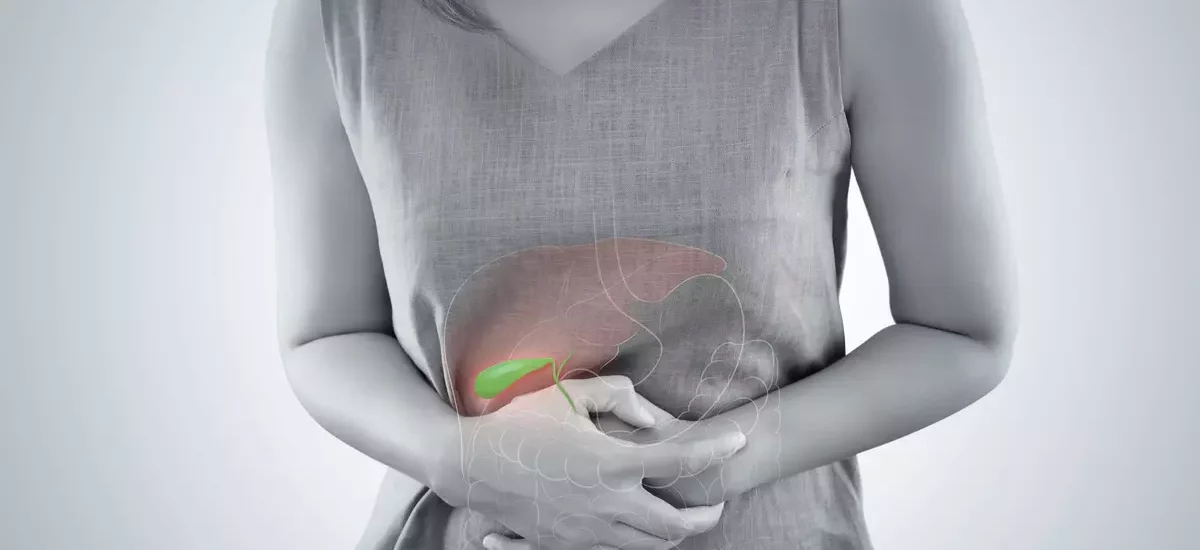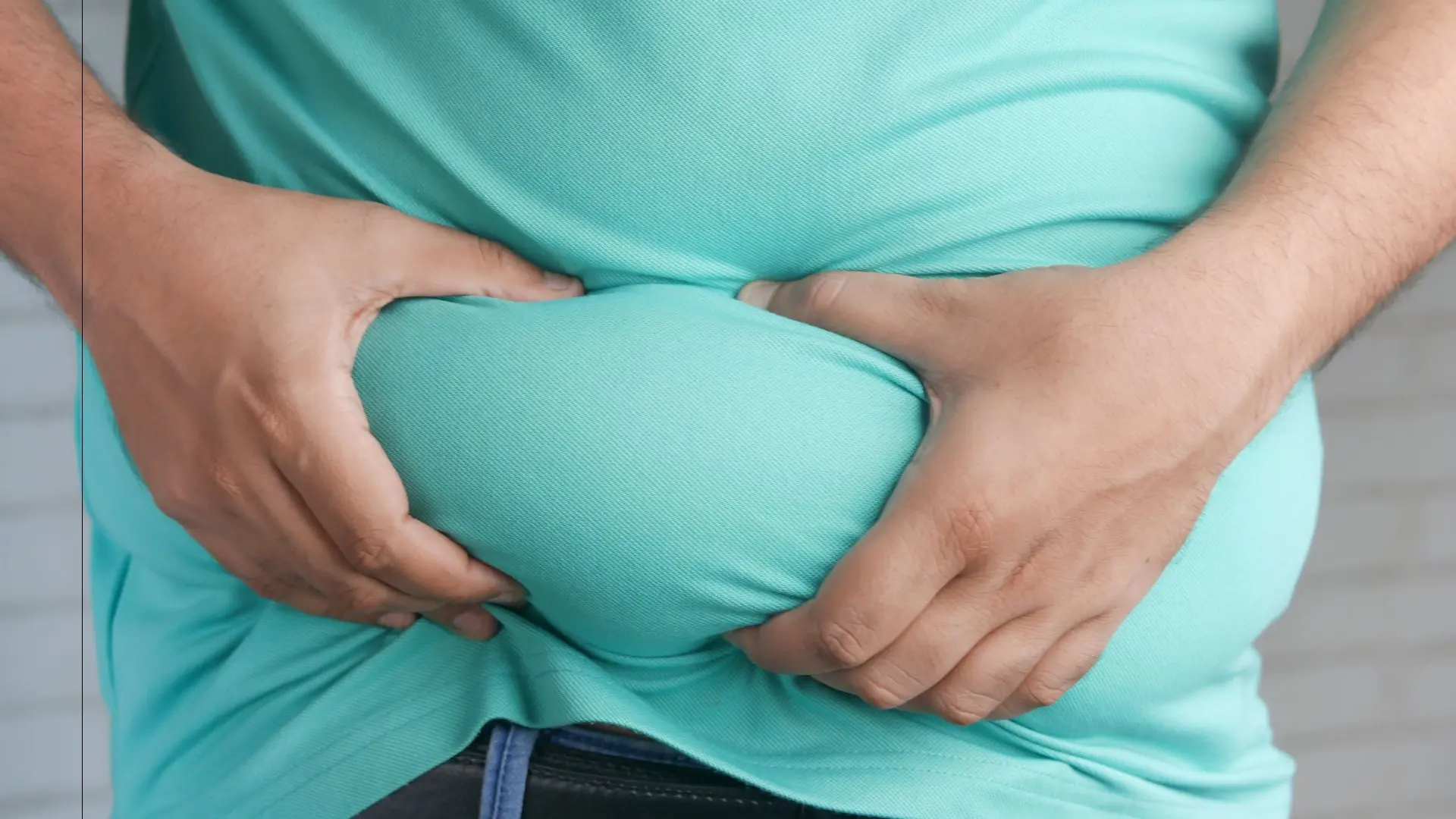


Gallbladder surgery, also called cholecystectomy, is a common operation that removes the gallbladder. The gallbladder is a small organ located under the liver and helps with digestion. It stores a liquid called bile, which helps break down fats during digestion. People often have gallbladder surgery because of problems like gallstones or gallbladder disease. Gallstones are hard deposits that form in the gallbladder and can cause pain and other issues. Gallbladder disease refers to different conditions that affect the gallbladder’s normal functioning, requiring it to be removed. Gallbladder surgery has many benefits, such as relieving pain and improving digestion. However, some people notice that their stomach looks bigger after the gallbladder surgery, which can be confusing.
People who have recently had gallbladder surgery should must be aware that why their stomach might look bigger after the procedure. By figuring out what causes this change, we can learn how to manage and adapt to it in the best way possible. In this article, we will explore the puzzling issue of a bigger stomach after gallbladder surgery. We’ll talk about why this change is significant and discuss the possible reasons behind it. By getting a better understanding of why this happens, people can make informed choices and find strategies to confidently deal with these changes in their digestion.
The gallbladder is a small organ in your body that helps with digestion. It’s located under the liver, on the right side of your belly. The gallbladder has an important job. It stores a special fluid called bile, which is made by the liver. Bile helps break down the fats you eat and makes it easier for your body to digest them. When you eat a meal, especially one with fatty foods, the gallbladder squeezes and releases the stored bile into the small intestine. This bile helps your body break down the fats so that they can be absorbed and used for energy.
Sometimes, people need to have their gallbladder removed. This happens when there are problems like gallstones or gallbladder disease. Gallstones are hard pieces that form in the gallbladder and can cause pain and other issues. Gallbladder disease is when the gallbladder doesn’t work properly and needs to be taken out. When the gallbladder is removed, it means that the bile doesn’t get stored in the same way anymore. This can sometimes cause changes in the way your stomach looks or feels after eating. Understanding how the gallbladder works and why it may need to be removed can help you understand why your stomach might be different after the surgery.
Gallbladder surgery has two common types: open cholecystectomy and laparoscopic cholecystectomy. Let’s find out what these surgeries are like and how they can help you feel better. Open cholecystectomy is when the doctor makes a big cut in your belly to take out the gallbladder. It takes longer to heal after gallbladder surgery because the cut is bigger. Sometimes, the doctor needs to do this if there are complications or they need a better look inside.
Laparoscopic cholecystectomy is a smaller surgery. The doctor makes tiny cuts in your belly and uses special tools and a small camera to remove the gallbladder. This surgery is quicker to recover from and leaves smaller scars. After the surgery, you will need time to rest and get better. The doctor will give you medicine to help with any pain or discomfort. They will also tell you what you can eat and do while you are healing. Removing the gallbladder helps get rid of the pain and problems caused by gallstones. It makes your life better because you won’t have to worry about gallstones coming back. Even without a gallbladder, your body can still digest fats, although some foods may affect you differently. Your doctor will tell you what foods are best for you. Gallbladder surgery can make you feel much better and give you a healthier life.
After gallbladder surgery, some people may notice that their stomach looks bigger. Let’s talk about why this happens and how it affects digestion and our bodies. One reason for a bigger stomach after the surgery is changes in digestion. The gallbladder helps break down fats, but when it’s removed, the way our body digests fats can change. Without the gallbladder, bile, which helps with digestion, goes straight from the liver to the small intestine. This change can affect how our stomach looks and feels.

The gallbladder also helps our body absorb fats and use them for energy. Without it, our body may not absorb fats as well as before. This can lead to a feeling of fullness or bloating in the stomach. Remember, not everyone will experience a bigger stomach after gallbladder surgery, and it can vary from person to person. Your doctor can help you understand what to expect based on your situation.
To understand why the stomach may change after gallbladder surgery, let’s explore the role of bile in digesting fats and how the liver compensates for the absence of a gallbladder. Bile is a special fluid that helps our body break down fats. It is produced by the liver and stored in the gallbladder. When we eat fatty foods, the gallbladder releases bile into the small intestine, where it mixes with the fats and helps break them down into smaller pieces. This process is essential for our body to absorb and use the nutrients from the fats we eat.
However, when the gallbladder is removed, the liver still continues to produce bile, but it no longer gets stored in the gallbladder. Instead, the bile flows directly from the liver into the small intestine. While the liver can adjust its bile production, the absence of the gallbladder can lead to changes in how the bile is released and the concentration of bile during digestion. Without a gallbladder, the timing of bile release into the small intestine may be different. This can affect the digestion of fats, making it a bit more challenging for our bodies to break them down efficiently. As a result, some fats may not get fully digested, leading to a feeling of fullness or bloating in the stomach.
The absence of a gallbladder can have some impact on fat digestion and absorption, our bodies have a remarkable ability to adapt. Over time, the liver and digestive system can adjust to these changes and find new ways to handle fat digestion.
After gallbladder surgery, you may need to make some changes to your diet to help manage a bigger stomach. Here are some tips that can make it easier for you. First, you can gradually switch to a low-fat diet. This means eating foods that have less fat like fruits, vegetables, lean meats, and whole grains. These foods are still yummy and good for you! Instead of having big meals, try eating smaller portions throughout the day. This can help your tummy digest the food better.
Remember to chew your food well and take your time while eating. It helps your tummy break down the food and makes digestion easier. Don’t forget to include fiber in your diet. Fiber is present in foods like whole grains, fruits, and veggies. It helps keep your tummy healthy. If fiber makes you feel bloated, try adding it slowly and drink lots of water. Water is super important for good digestion, so make sure to drink enough water every day to keep your body hydrated. Lastly, listen to your body. Pay attention to how different foods make you feel. Everyone is unique, so certain foods may affect you differently. Keep a food diary to remember which foods make you feel good and which ones don’t.
Read Also: What Does It Mean When Your Right Ear Rings?
After gallbladder surgery, there are some other things that can make your stomach look bigger. Let’s learn about these factors and how they can affect your tummy. One thing is post-surgery swelling. When you have surgery, your body can get a little swollen as it heals. This can make your stomach appear larger than usual. But don’t worry, the swelling will go away as you get better.
Another factor is gas. During surgery, doctors sometimes use gas to help with the operation. After the surgery, some of that gas can stay in your tummy and make it feel bloated. This bloating can make your stomach look bigger too. The gas usually goes away on its own, but you can try doing gentle exercises like walking to help get rid of it.
It is important to stay active and exercise regularly after surgery. Exercise helps your tummy work better and keeps your body healthy. It can also reduce bloating and make your muscles stronger, including the ones in your tummy. Talk to your doctor about what exercises are safe for you. Eating healthy foods is also important. Try to eat a variety of good foods like fruits, vegetables, lean meats, and whole grains. These foods help your tummy digest better and keep you at a healthy weight. Being a healthy weight is important because being too heavy can make your stomach bigger too.
Read Also: C Section Scar Burning
having a bigger stomach after gallbladder surgery can be a bit confusing, but we’ve learned some important things about it. When the gallbladder is removed, it can affect how our stomach digests food and absorbs fats. This can make our stomach look and feel bigger. But don’t worry! There are things we can do to help. We can make changes to our diet, like eating foods that are low in fat and having smaller meals more often. Chewing our food well and eating slowly can also make a big difference. Drinking plenty of water and including fiber-rich foods in our diet can keep our tummy healthy too.
Being active and exercising regularly is important after surgery. It helps our tummy work better and keeps our body healthy. It can also reduce bloating and make our muscles stronger, including the ones in our tummy. Just keep taking care of yourself, eating well, staying active, and listening to your doctor. Soon, you’ll feel better and have a healthy tummy again.